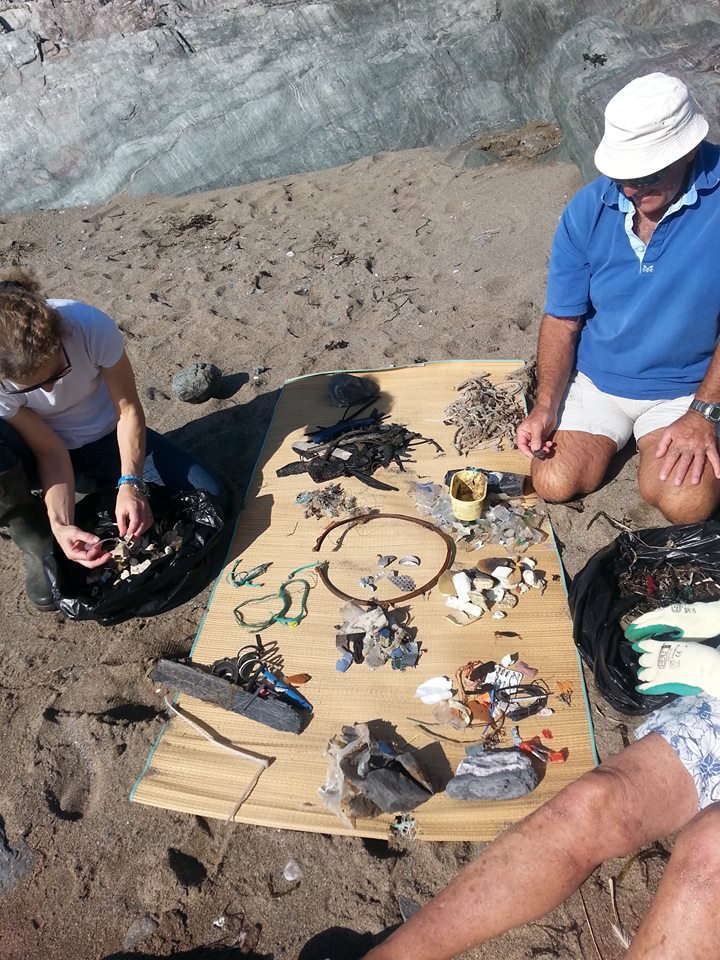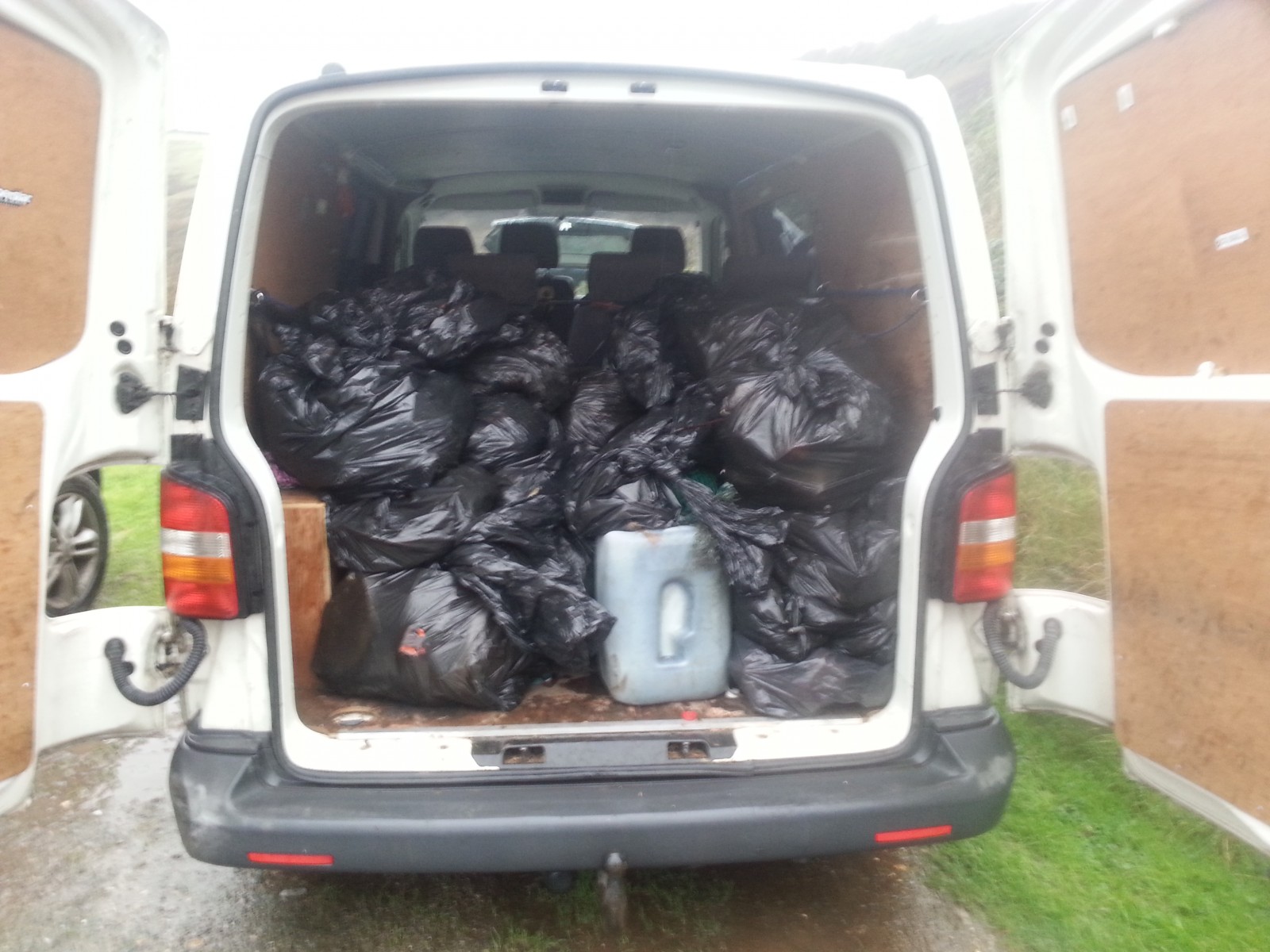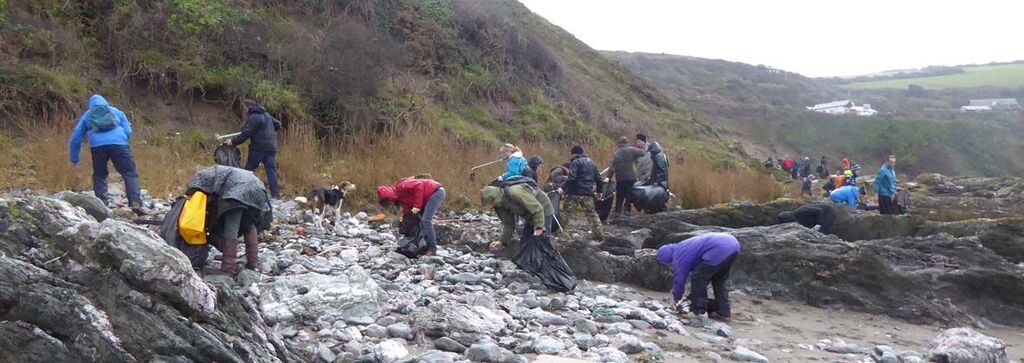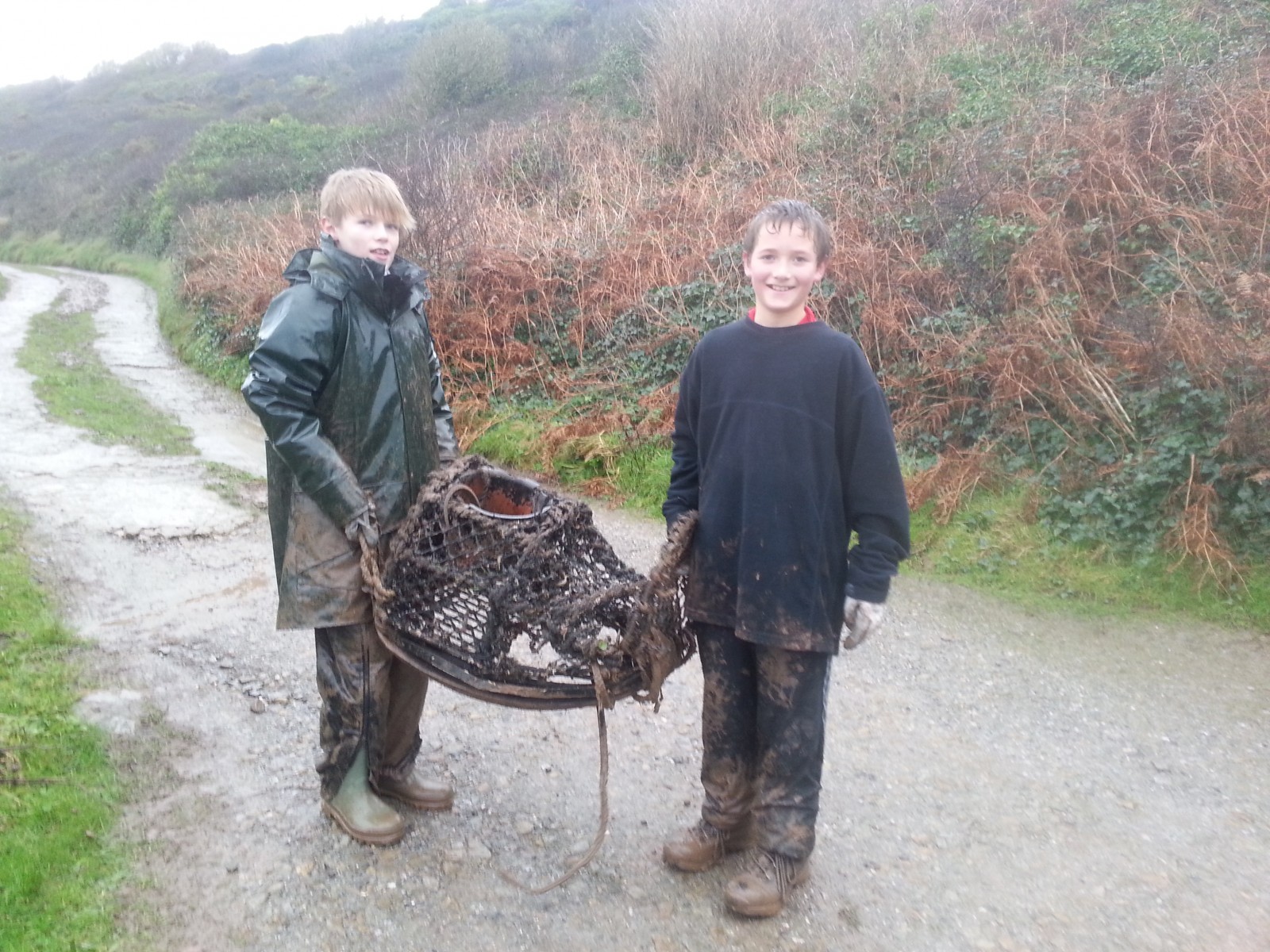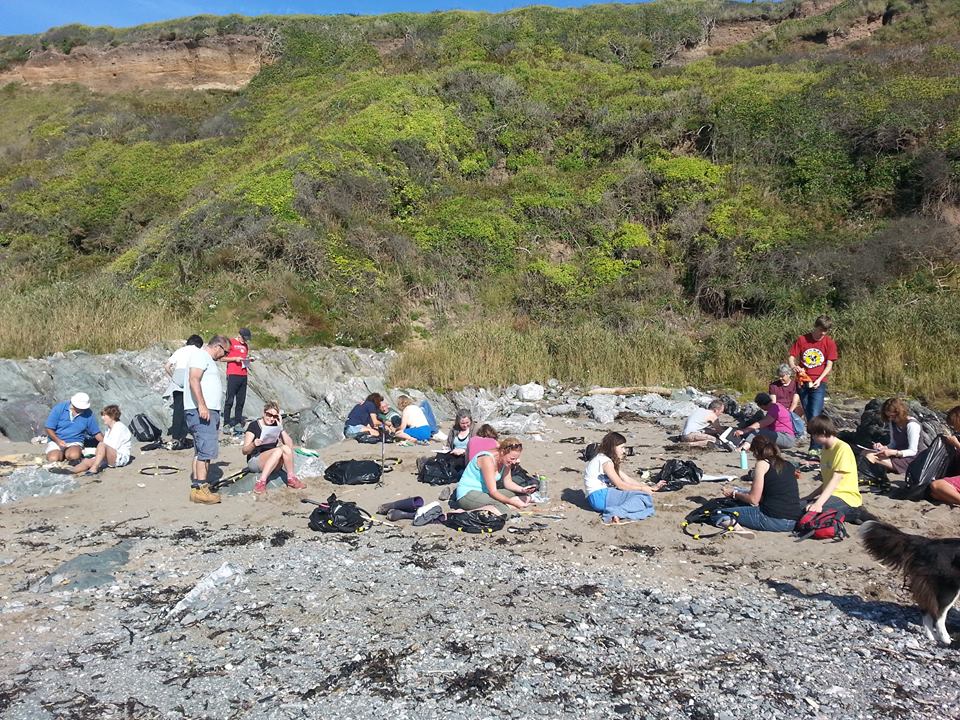Data gathering
We are one of 19 groups around the UK who have been asked to survey the same 100m stretch of beach four times a year between 2015 and 2018 to provide baseline data on marine litter.
This initiative is being coordinated by the Marine Conservation Society for Defra, as the UK Government is required by the EU to come up with proposals on how to achieve good marine environmental status by 2020 under the Marine Strategy Framework Directive (including visible reduction of marine litter).
Despite the vote to leave the EU in the 2016 referendum, the surveying has been fully funded, and will continue until completion - hopefully providing data that can be used within the UK to lobby for tough action on marine litter.
Our chosen stretch of beach is at Polhawn, on the eastern edge of Whitsand Bay. This is a beach with very few visitors, and which is rarely, if ever, cleaned - meaning we are only recording what genuinely washes up out of the sea.
The last of the surveys will be in July 2018, and from our data so far we have averaged around 5,000 pieces of plastic waste on each occasion from just this 100m stretch. Many items that wash up on this beach are decades old - including lots of electrical cable, engine filters etc. (presumably from the days when the Dockyard's solid waste was dumped in the bay), pieces of latex from a 1970s container spill, and coal from an early 20th Century shipwreck in Whitsand Bay. All of this is testament to the durability of manmade waste in the sea.
Everything collected in these surveys has to be painstakingly counted and recorded by our valiant volunteers on sheets with items broken down into scores of different categories.
It's a whole day's work, but an important job that we hope will help to bring about real change in future.
A shocking number of pieces of plastic are found in just 100m of this remote beach.

